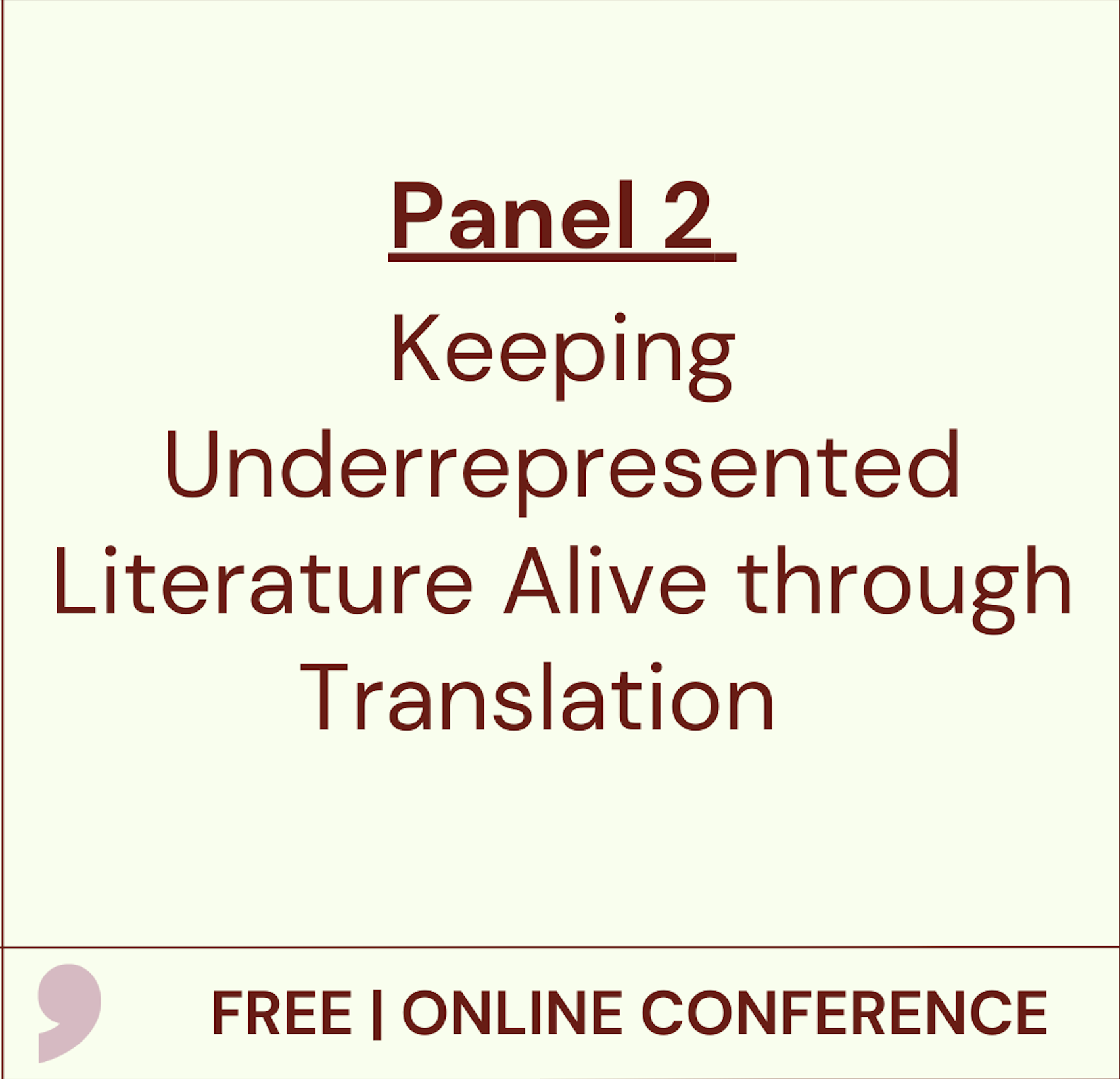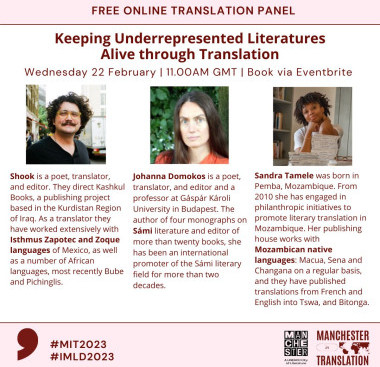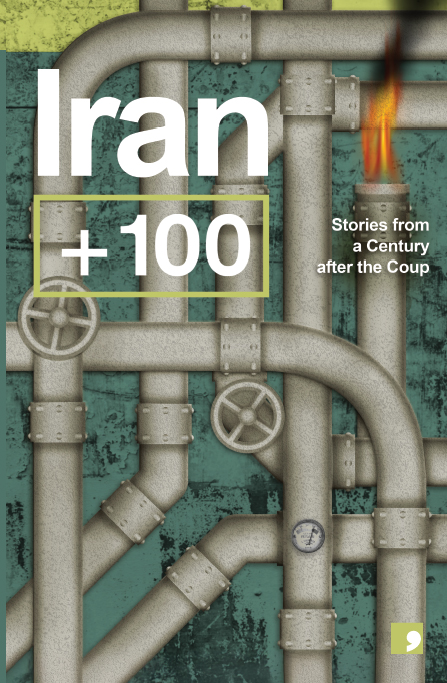Manchester in Translation - Panel 2
Keeping Underrepresented Literatures Alive through Translation
Price: 0.00
Discount Price: 0.00

This panel will be streamed live to the Comma Press YouTube channel. You can follow a link to the YouTube event from this Eventbrite page, or from the Comma Press website, social media pages (@commapress) and YouTube channel.
About the event
Translators from languages underrepresented in English translation will discuss what role translators, editors, publishers and authors plays in keeping the literature of those languages alive.
Shook is a poet, translator, and editor. Winner of the 2021 Words Without Borders-Academy of American Poets Poems in Translation Contest. Today they direct Kashkul Books, a publishing project based in the Kurdistan Region of Iraq. As a translator they have worked extensively with Isthmus Zapotec and Zoque languages of Mexico, as well as a number of African languages, most recently Bube and Pichinglis.
Johanna Domokos is a poet, translator, and editor (hochroth Bielefeld, translingual and performative series) and a professor at Gáspár Károli University in Budapest. The author of four monographs on Sámi literature and editor of more than twenty books, she has been an international promoter of the Sámi literary field for more than two decades. Her most recent book is Endangered Literature--essays on literary interculturalism, translingualism and vulnerability. She is currently leading the Gruppe Bie Translation and Book Production Lab at University Bielefeld.
Sandra Tamele was born in Pemba, Mozambique. In 2007 she made history by becoming the first Mozambican to translate and publish literature with her debut translation of Niccolò Ammaniti’s novel Io non ho paura into Portuguese. From 2010 she has engaged in philanthropic initiatives to promote literary translation in Mozambique that has led to the annual Literary Translation Competition she has sponsored and organized since 2015. Her publishing house works with Mozambican native languages: Macua, Sena and Changana on a regular basis, and they have published translations from French and English into Tswa, and Bitonga.




